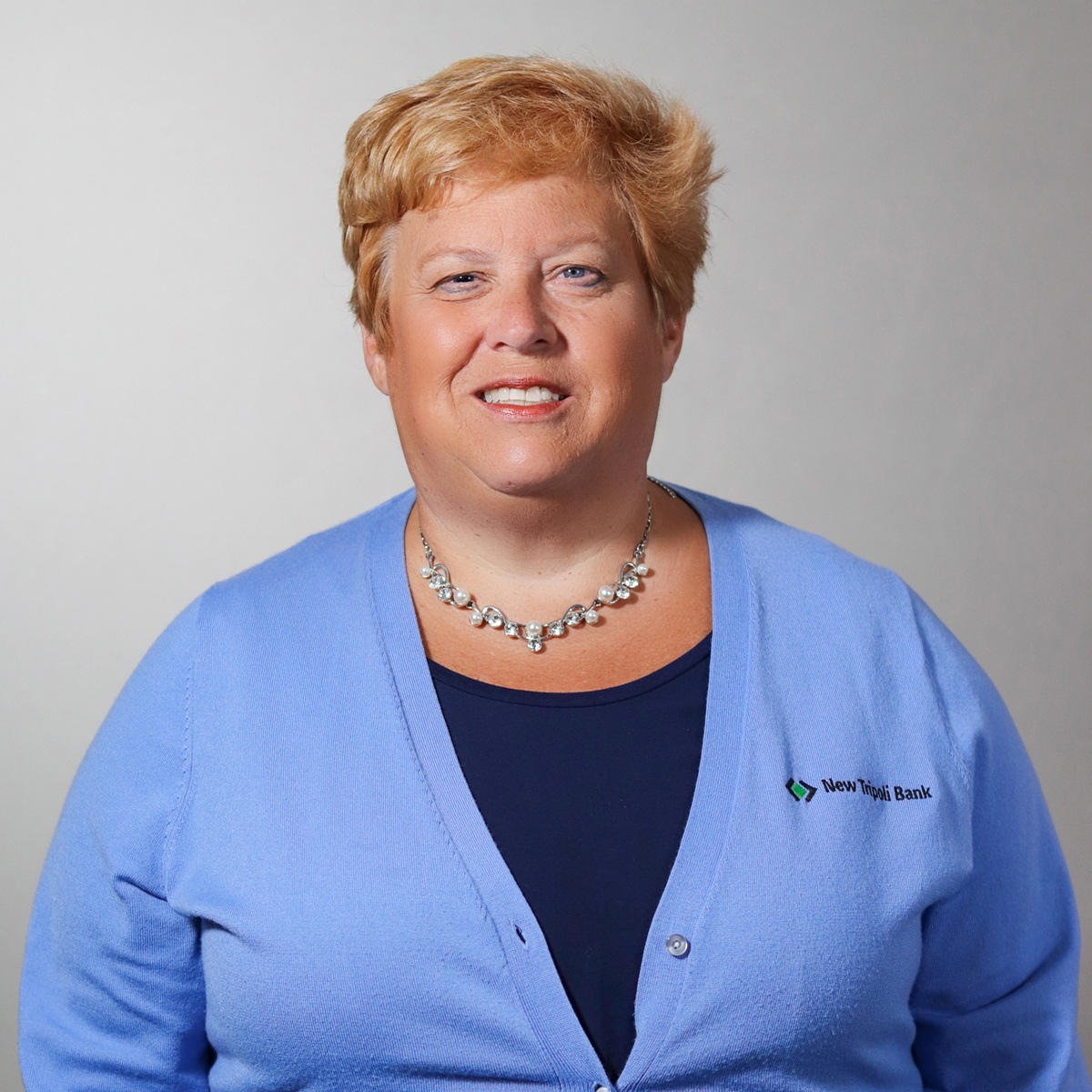When the United States Mint was established in 1792, one of the first coins produced was the one-cent piece. Prior to the U.S. establishing its own currency, American colonists would use a mixture of coins from other countries for trade, with the British penny being the most popular. Hence, when the U.S. government began issuing its own currency, the common one-cent piece inherited the nickname “penny” from its British counterpart.
The first one-cent coin was designed by Benjamin Franklin and featured on its obverse (heads) side the image of a lady with flowing hair representing Liberty. Her design changed a few times over the years, with her flowing hair eventually being wrapped up in braids starting in 1808, when she started being portrayed wearing a Liberty headband. This design would last until 1857, when it would be replaced by the smaller Flying Eagle cent.



The original penny was nearly 50% larger than the modern one-cent piece and made from pure copper, making it more than five times as heavy as the modern penny. The so-called large cent was about the size of a modern half-dollar piece. The penny was shrunk nearer to its current size with the Flying Eagle cent in 1857, which would then be replaced by the Indian Head cent in 1859.
 The Lincoln cent was adopted in 1909 on what would have been Abraham Lincoln’s 100th birthday. Lincoln was the first figure from American history to have their likeness grace a piece of U.S. currency, which was the result of a wave of public sentiment stemming from the anniversary of the former President’s birth. This was also the first piece of U.S. currency to feature the motto “In God We Trust.”
The Lincoln cent was adopted in 1909 on what would have been Abraham Lincoln’s 100th birthday. Lincoln was the first figure from American history to have their likeness grace a piece of U.S. currency, which was the result of a wave of public sentiment stemming from the anniversary of the former President’s birth. This was also the first piece of U.S. currency to feature the motto “In God We Trust.”
Lincoln’s likeness as featured on the penny is actually based on the work of a Lithuanian-born Jew named Victor David Brennar who had made a bas-relief of Lincoln based on an old photograph. The relief had caught the attention of then-president Theodore Roosevelt. In some older coins, Brennar’s initials can be found on the rim of Lincoln’s bust.
Modern pennies are copper-plated zinc, which is both lighter and cheaper. The use of zinc in the minting of one-cent pieces began at the peak of World War II, when the demand for copper to be used in munitions meant that an alternative had to be found for minting currency. From World War II until 1982, pennies were 95% copper and 5% zinc. This changed again in 1982 because the value of the copper used to mint a penny had risen above the value of the currency itself, leading to the modern composition of 97.5% zinc and 2.5% copper.
 The modern Lincoln cent was redesigned in 2009, in honor of the bicentennial of Lincoln’s birth. This design did away with the Lincoln memorial on the reverse side of the coin in favor of a shield bearing the motto of the United States, E Pluribus Unum. There were also four special reverse-face designs minted in limited quantities for Lincoln’s bicentennial, each depicting a scene from Lincoln’s life.
The modern Lincoln cent was redesigned in 2009, in honor of the bicentennial of Lincoln’s birth. This design did away with the Lincoln memorial on the reverse side of the coin in favor of a shield bearing the motto of the United States, E Pluribus Unum. There were also four special reverse-face designs minted in limited quantities for Lincoln’s bicentennial, each depicting a scene from Lincoln’s life.
I hope you enjoyed learning about the origins, designs, and transformation of the U.S. penny since the founding of our country, and I hope you think a bit more about these inconspicuous pieces of currency the next time you feel them jingling around in your pocket.
 Kayla Schnellman is the Assistant Branch Manager for our Claussville Office. She has worked for New Tripoli Bank for over five years, where she has worked as Community Banker, Customer Service Representative, and Head Teller. When she's not working, she enjoys spending time with friends and with her three dogs.
Kayla Schnellman is the Assistant Branch Manager for our Claussville Office. She has worked for New Tripoli Bank for over five years, where she has worked as Community Banker, Customer Service Representative, and Head Teller. When she's not working, she enjoys spending time with friends and with her three dogs.
By Tanya Hausman

Have you ever been cleaning your office when you find a forgotten bill hidden underneath a stack of papers? Maybe you recently received an overdraft notice because you weren’t paying attention to your account balances? Whatever the case, being financially fit isn’t just about getting better with saving and spending money; something as simple as staying organized can help you maintain a healthy financial life.
Organization can be applied to all aspects of your life, but it can be especially helpful for those of us who are trying to get smarter with our money habits. Here are some good rules of thumb for staying organized to improve your financial fitness.
Stick to a routine. If you’re the kind of person who is prone to distraction, it can be helpful to set a time of day dedicated to a particular important activity, whether that’s cleaning your house or paying your bills. Maybe you collect your bills when you come home from work and spend the first few minutes of your evening paying them online, or maybe it’s easier for you to wait until the following day and schedule the payments first thing in the morning.
The longer you repeat an action, the less thought it takes to do that action each time. A lot of the time we become disorganized while trying to avoid the amount of mental or physical strain of a particular activity. What’s important is to not let interruptions in your routine stop you from sticking to it.
Automate your tasks whenever possible. When a routine simply won’t cut it, there are online tools you can use to make organizing your life easier. New Tripoli Bank offers automatic bill pay tools that allow you to pay recurring bills each month. When you set up monthly bills to be paid automatically from your checking account, it reduces the stress that comes from worrying about late fees. You can always start off small with one or two bills until you get a handle on it.
Keep your bills, invoices, and receipts in one place. Purchase an expanding folder or a file cabinet that you can dedicate to filing your monthly bills, invoices for work, and documents you need for tax purposes. Ideally you will keep them near your desk or wherever you normally write checks or pay bills online. Decide on a filing system so you can easily find a bill from a specific company. If you plan to use a physical filing system, make sure you print out electronic bills so you will have them in the same place.
Some people prefer to store their records online and shred any paper documents that arrive through the mail. If you want to organize your bills electronically, scan every bill you receive in the mail and keep them filed in the same place as the rest of your documents. Having a mix of digital and physical records defeats the purpose of organization. No matter which way you choose, make sure you have a filing system that makes it easy to locate specific documents at a later date.
Create a budget and track your spending. You should always be aware of where your money goes and how your spending fluctuates throughout the year. Most homeowners know that their electric bills increase in the summer months when they’re constantly running the air conditioning. Keeping a log of your spending will help you streamline your budget and identify areas where you can cut back.
It’s important to leave yourself reminders for bills that occur once a year, such as property taxes or the bill for filling your oil tank. Keeping a checklist of expected bills will prevent you from being surprised by sudden expenses that may throw your monthly budget out of order.
Learn how to prioritize your obligations. Whether it’s planning your budget or organizing your bills, you need to categorize so you give the proper amount of attention to the things that are most important. When budgeting, you should allocate money for necessities such as bills, food, and utilities before worrying about things like entertainment, donations, and savings. If you find yourself with a mountain of bills, prioritize paying them off in order of due date.
Implementing these tips can help relieve the amount of stress you feel when thinking about personal finances. By creating a daily routine, using tools that can automate processes, organizing your bills into one place, reducing clutter, creating a budget, keeping on top of your spending, and prioritizing your obligations, those financial goals that seem hopelessly out of reach start to seem a lot more achievable.
Looking to improve your financial fitness? Contact your local New Tripoli Bank branch to speak with one of our helpful community bankers and learn how our products can help you achieve your financial goals.
 Tanya Hausman is a Senior Deposit Operations Specialist with New Tripoli Bank. She has been a member of the New Tripoli Bank team for the past ten years and when not working she likes to spend her time raising her two wonderful children and practicing her crafting hobby with her Cricut machine.
Tanya Hausman is a Senior Deposit Operations Specialist with New Tripoli Bank. She has been a member of the New Tripoli Bank team for the past ten years and when not working she likes to spend her time raising her two wonderful children and practicing her crafting hobby with her Cricut machine.

Your credit score is a prediction of your credit behavior, such as the likelihood of you paying back a loan on time, based on information from your credit reports. Companies use your credit score to decide whether to offer you a mortgage, credit cards, auto loans, and other credit products, and landlords use credit scores to screen tenants. The interest rate you receive on credit products is also influenced by your credit score.
When you have a low credit score, it can feel impossible to pull yourself out of the hole. Though it can take several months to see an improvement on your credit score, there are a number of quick, simple things you can start to do to help boost your credit score.
Review Your Credit Reports
Before you work on improving your credit, it’s important to know how you arrived at your current credit score. You can do this by pulling your credit report from the three major national credit bureaus—Equifax, Experian, and TransUnion—and reviewing reports for indicators of what is negatively impacting your score.
Be on the lookout for things like sustained high credit card balances, repeated missed or late payments, collections, and judgments. All of these can detract from your overall credit score. You should also be wary to not pull your credit report too often, as doing so can negatively impact your score. You are entitled to one free copy of your credit report from all three credit bureaus once per year, which can be accessed at www.AnnualCreditReport.com. You can also obtain free weekly credit reports from the website which show your credit history without your score.

Organize Your Bill Payments
Your payment history has a massive impact on your credit score. That’s why it’s important to develop a system for paying your debts on time. New Tripoli Bank offers Automated Bill Payment through our online banking service that makes paying down these monthly debts much easier.
Create a record of your monthly bills, either in paper or digital, and set reminders for yourself so you know when your next payment is coming up.
If you are comfortable doing so, consider charging your monthly bills to a credit card, while making sure you pay the card’s balance in full each month to avoid interest charges. The benefits are twofold: you consolidate your bill payments into a single monthly credit card payment, and you boost your credit score as long as you keep up with those monthly payments.
Keep Your Credit Utilization Low
Credit utilization is the portion of your available credit that you use at any given time and is another important factor in how your credit score is calculated. While your best option is to pay your credit balance in full each month, if you are unable to do this, you should set a hard limit for how much of your available balance you can leave outstanding each month. 30% is the recommended amount to start improving your credit score, and each month you should work on reducing this percentage to further increase your score.

Limit Requests for New Credit
When you apply for a credit card, loan, or other credit product, the company offering the product will pull your credit report in order to gauge your creditworthiness. If this only happens occasionally, it won’t have much effect on your creditworthiness, but if you are repeatedly applying for new credit in a short period of time, it can damage your credit score.
Not all credit report inquiries will affect your score. So-called “soft inquiries” include an employer checking your credit, routine checks by financial institutions with whom you already do business, and companies checking your credit in order to send pre-approved credit offers. If you are working on improving your credit score, it is best to avoid applying for new credit in general.
Consolidate Debts
If you have a number of outstanding debts, it can be advantageous to take out a debt consolidation loan from a bank in order to pay off older debts. This leaves you with a single payment and the possibility of a lower interest rate on the loan, which puts you in a better position to pay down your debt faster and improve your credit utilization ratio.
There is no set amount of time that it takes to improve your credit score. How long it will take depends on the specifics of why your credit score is low and your financial capability to get a handle on your credit situation. Improving your credit score can take several weeks or months before you see a noticeable impact on your score. The important part is to take those first steps to a healthier financial future. If you’re looking for help getting started, you can reach out to New Tripoli Bank, which offers products and services tailored to your needs.

Kate Hart-Zayaitz is New Tripoli Bank's Chief Lending Officer and Senior Vice President. Kate has spent many years working for various community banks in our area. She was born and raised in Emmaus and has been involved with multiple banking and economic organizations throughout the Lehigh Valley.
In honor of Black History Month, we thought it would be pertinent to highlight the many milestones that African Americans have achieved in finance and banking. Ever since emancipation, African Americans have played a significant role in the development of our modern financial and banking institutions. It is our sincere hope that these stories of influential figures in Black history can help inspire you.
The Freedmen’s Savings and Trust Company was a savings bank chartered by the United States’ Congress in 1865 to collect deposits from newly emancipated communities. It opened 37 branches across 17 states and Washington D.C., collecting funds from more than 67,000 depositors across the country. Unfortunately, the bank’s rapid growth was mired by mismanagement and fraud, weighed down by speculative loans issues by the bank’s White officials, and would eventually fail in 1874.
Blanche Kelso Bruce was the second African American to be elected to the U.S. Senate and the first to serve a full term. Born a slave to a plantation in Virginia, he is best remembered for his investigation of the collapse of the Freedmen’s Savings and Trust Company. He would later become the first Black Register of the Treasury and the first African American to appear on U.S. Currency in 1879.
The same year that Bruce first appeared on U.S. Currency, the first bank founded by African Americans opened in Washington D.C. The Capital Savings Bank provided capital to Black-owned businesses, to whom many White-owned banks were unwilling to lend. Just four years after it opened, the bank’s deposits had grown to well over $300,000. The Bank continued to operate under African American leadership and within Black communities until it closed in 1902.
Between 1888 and 1934, 134 Black-owned banks were formed to help Black communities overcome financial hurdles, not only by providing capital and credit but also offering training and employment. One of the greatest successes of African Americans in the financial sector was in the Greenwood District of Tulsa, Oklahoma, also known as Black Wall Street. Greenwood had become one of the most prosperous Black communities in all of America. Tragically, the neighborhood was destroyed by white supremacists during race riots in 1921.
In the early 20th century, many former slaves made names for themselves in the financial services industry. Alonzo Herndon was one such former slave, founding the Atlanta Life Insurance Company after working his way up from slave to barber to the owner of several barbershops, before eventually opening what is still one of the largest Black financial institutions in the United States, as well as becoming Atlanta’s first African American millionaire.
While not a slave herself, Maggie Lena Walker was the daughter of former slaves who would grow up to become the first African-American woman to charter a bank. The St. Luke Penny Savings Bank was designed by a Black architect and was one of few banks at the time whose board included a high percentage of women. Walker would go on to serve as the Bank’s president for several years.
Another former slave was Major R.R. Wright who, along with 70 other Black bankers, founded the first professional organization of African Americans in finance in 1927, an organization which still operates today as the National Bankers Association and focuses on providing financial support for underserved minority communities.
Following the Civil Rights Movement of the late 60s and early 70s, African Americans became much more represented across all financial sectors. In 1970, Joseph L. Searles became the first African American to do business on the floor of the New York Stock Exchange. Azie Taylor Morton was the first African American woman to have her signature on U.S. Currency when she was appointed by President Jimmy Carter to serve as the 36th Treasurer of the United States. In 1993, Harry Alford and Kay Debow founded the National Black Chamber of Commerce, which today is the largest Black business organization in the world, with regional chapters in the United States, Africa, the Caribbean, Central and South America, London and Paris.
We hope this extremely brief history of the role African Americans have played in the banking and financial services industry has been both entertaining and informative. It is a history of great struggle that highlights the hurdles minorities have had to overcome in order to achieve some level of success in today’s society. Hopefully, we will continue to work toward equity and equality in the future, not just in our industry, but across all parts of our society.

Failure is an inevitable part of learning any new skill, whether that skill is riding a bicycle, learning to drive stick, or tackling your personal finances. When we fail, it’s tempting to throw our hands up in the air and claim defeat. However, for something as important as managing your finances, giving up simply isn’t an option.
Effective budgeting is a powerful tool to help you manage your money, save for the future and avoid long-term debt, but there are several common mistakes people make that can derail their progress and increase their financial anxiety. Here is a list of several common budgeting pitfalls you should avoid on your road to financial wellness.
Not Tracking Spending
Take a moment to think about how much you spent on food in the past week. Do you know the exact amount? How about your monthly bills, like rent or gas? Maintaining an accurate budget means knowing exactly where your money is going by tracking variable expenses, such as groceries or entertainment, as well as fixed costs like rent and utilities.
Why is this important? Because tracking your spending helps you determine where you may be overspending. If you are not paying attention to your spending, you may be missing opportunities to save.
You should formulate a system for tracking your expenses. Some people prefer spreadsheets and pen-and-paper while others rely on budgeting apps to keep track of their spending.
Ignoring Expenses
Most people maintain a monthly budget that tracks income and expenses on a month-by-month basis. However, this doesn’t account for irregular expenses that occur at longer intervals throughout the year. Examples include property taxes, insurance payments, school or tuition fees, annual subscriptions, and membership dues. Not taking these expenses into account could leave you short on cash during certain months of the year.
A solid method of preparing for irregular costs is creating a fund specifically for paying off one-time or irregular expenses. Look at your past bills for taxes, school, insurance, etc., and determine how much you pay annually for these expenses and when the payments come due. Calculate what percentage of your income you must set aside each month so that you will have the funds available when you receive these irregular bills.

Setting Unrealistic Goals
Your budget should attempt to find a balance between saving and comfort. If you set savings goals that are too ambitious, you may find yourself struggling to keep up with your plan. It’s important to allocate some of your budget toward entertainment and fun to prevent you from burning out and abandoning your savings plan. Start off with small, achievable goals and work your way up to more ambitious targets.
On the other hand, setting loose goals can also be problematic. It’s important to set a budget that considers your responsibilities and needs—such as bills, groceries, and utilities—so that you don’t find yourself taking on debt because you didn’t save enough.
Not Having an Emergency Fund
There is a popular saying that goes “no plan survives contact with the enemy.” In this example, the enemy of your budget is surprise expenses that make it harder to maintain your savings plan. If you’re balancing out your budget to the point that your income and expenses are equal, even the smallest financial hurdle can cause you to stumble before you reach the finish line.
The best thing you can do is include an emergency fund in your savings plan. Budget some portion of your monthly income into an emergency fund that is separate from your normal savings. In addition, do not dip into these funds except in the case of a financial emergency! This acts as a cushion for future expenses that can’t be accounted for.
Neglecting Your Budget
Your budget is not set in stone. You need to remain flexible and adjust your plan whenever something changes in your financial situation or even in the broader economy. You should revisit your budget any time you encounter a big financial change, such as moving or changing jobs. Pay attention to things like inflation which change the amount you spend each month on things like groceries or gasoline and don’t forget to adjust your budget accordingly.
The key to budgeting is practice. Like any skill, you are going to make mistakes when trying to achieve your financial goals. It’s important to not let these hurdles deter you from sticking to your plan, but it is equally important that you remain aware of any traps you may fall into. By successfully avoiding or managing these budgeting hurdles, you’ll put yourself on track for a bright financial future.

Michele Hunsicker is an Executive Vice President and Chief Financial Officer for New Tripoli Bank. She has been part of the Bank's finance department for over twenty years and has worked in banking for over thirty-five. Michele serves on the board of the Northern Lehigh Food Bank and regularly volunteers with her local church.
The beginning of the New Year is an interesting time. It’s the time of year when people reflect on the past year of achievements while planning goals for the next. The tradition of making New Year’s resolutions has been around since people began celebrating the flipping of the calendar, and just as old are jokes about how difficult it is to actually follow through with your New Year’s resolution.
When it comes to achieving a long-term goal like a New Year’s resolution, I find it helpful to commit to smaller milestones that incrementally lead toward the larger ambition. These small successes throughout the year help maintain my focus and remind me how good it will feel when I finally reach the finish line.
Some of the most common New Year’s resolutions are to save more money or improve one’s financial situation, but the vagueness of these goals often leads people to fall back into old habits before they achieve their wish. If your resolution for 2024 is to improve your personal finances, here are some smaller objectives you can aim for that will help you stay on target.
Set a Savings Goal
It can be hard to commit to a resolution without a tangible reward at the end. Having a clear goal in mind helps motivate you to stick to your plan throughout the year and provides a sense of achievement when you finally reach the finish line.
Your goal could be something small like saving up to purchase a new video game console, setting aside money for a vacation later in the year, or something as large as buying a new automobile or putting a down payment on your first home. Your target should have a specific dollar amount and time frame for reaching your savings goal.
Establish a Budget
You can’t improve your financial situation if you don’t comprehend your situation in the first place. A budget compares your monthly income against your expenses while separating them into categories, creating a visual representation of your finances.
Now think about your savings target and how much you need to set aside each month in order to reach your goal within your time frame. Consider reducing your expenses in categories where you can comfortably cut back on spending. Make sure to check your spending regularly so you know when you’re getting close to the limits you’ve set for your budget in each category!
Throughout the year, experiment with different budget plans to see what works best for you. Don’t be afraid to shift your priorities if you start feeling the pinch in certain areas. Your main priority with establishing and maintaining a budget is being more aware of your spending habits.
Tackle Your Debt
This has been discussed many, many times on this blog, but it bears repeating: paying down your debt should be a top priority. By focusing on tackling your debts, you reduce the amount you pay in interest over the long term and put the money you’d otherwise put toward debt payments into a savings account.
Make a debt payment plan—and commit to it! Organize your debts from highest to lowest interest rate, then put extra monthly income into paying down the balances with the highest rate, while also paying your monthly minimum payments for all your accounts. As the year progresses and you pay down your debts, you’ll find you have more money to spend in other categories.
Become a Foodie!
This is not for everyone, but for those of you with time in your day to spare, growing and preparing our own food is an excellent way to save money. Think about the foods you love; are there meals you regularly purchase pre-made or dishes you typically order when eating out? Most recipes can be found online and purchasing the ingredients to prepare yourself will always be cheaper than ordering from a restaurant or buying a pre-made meal kit.
If you have the space to do so, consider planting a garden to grow your own fruits and vegetables. Not only does this save on the cost of buying produce, but it also provides an easy opportunity for exercise and promotes eating healthier—for those of you who also made a New Year’s resolution to lose weight!
Think Forward
Breaking free of an “in-the-now” mentality is difficult but crucial if you wish to achieve a specific financial goal. When you look at your monthly budget, after accounting for bills, debts, food, and other necessities, it’s tempting to look at the money left over as free for you to spend. This is why the first suggestion I made in this blog was to set a savings goal—it’s important to get into the habit of setting money aside for future expenses.
You should expand this thinking beyond a goal for 2024. Plan to put portion of your monthly income aside for retirement savings and/or an emergency fund. You should always have a plan for how to continue paying your bills, debts, and other necessities after retirement, or in the event of an unforeseen circumstance such as the loss of employment or a disaster. You can make this process easier by budgeting a portion of your monthly income to automatically transfer into a dedicated savings account.
Looking for more ideas on how to improve your financial wellness in 2024? Consider reaching out to a friendly Community Banker at New Tripoli Bank and asking about our savings products. There’s no shame in asking for help when it comes to improving your finances and our employees have experience with customers going through similar situations.

Sundra Sherwin is Vice President of Branch Administration for New Tripoli Bank. She has over 25 years of banking experience and has been with New Tripoli Bank for 15 years, working in various positions at the Bank. She has been promoting financial literacy in our community through her work with the Bank for years.

Of the many lessons parents need to teach their children, one of the most difficult concepts to impress upon children is the importance of financial literacy. While most American parents have no trouble talking to their children about religion, politics, or dating advice—as much as children probably groan when their parents bring up that last one—when it comes to money, nearly half of all American parents say they don’t know how to discuss money in a way they think their children will understand.
However, there are several ways you as a parent can teach your children good money habits. It’s one thing to sit your child down and explain a topic to them; it’s another to have them reach the conclusions you want through their own observation and experience. Consider these options to help prepare your children for a future handling their own finances:
Make Them Earn Their Allowance. This is the easiest and most obvious one, but it’s vital for children to understand the relationship between the amount of work they’ve put into earning their allowance and the cost of the things they buy with it. You can set dollar amounts for regular tasks such as washing the dishes or organizing their bedroom, with longer tasks like mowing the lawn being worth extra money.
Let Them Spend. While it is tempting to stress upon your children the importance of proper budgeting and fiscal responsibility, doing so without allowing them to reap the rewards will leave them without the motivation to practice good saving habits. It is important that your child develops a positive relationship with money and recognizes that saving allows them to purchase the things they want. Allow your child to buy something small they really want—a toy, candy bar, or comic book, for example—so they can feel the satisfaction of spending the money they earn.
Encourage Them to Save. Every parent knows what it’s like to be inundated with requests for video games, toys, or other expensive purchases. Sit down with your child and help them calculate how long it will take with their current allowance to save up for the item. Ask them to consider how much of their allowance they spend each week and how much less they’d be willing to spend if it means being able to buy the item for themselves. For particularly pricey items, you could consider contributing to help buy the item, promising that you will pay for half of the purchase if your child follows through with saving up for their half.
Open a Bank Account. Many banks, New Tripoli Bank included, offer starter checking account options to get children started with handling their own money. You should consider opening an account for your child even before they’re hired for their first job. Bank accounts can help a child see the gradual process of building up a bank balance and learn how to track their spending over time.
Introduce Investing. Whenever your child earns money, whether through allowance, birthday gifts, or even odd jobs like babysitting, have them set a little aside each month into a long-term savings or investment account. When your child is old enough to buy a car or start college, hand over control of the account to them, showing them the benefits of long-term financial planning.
Practice What You Teach. As previously stated, children learn by observing their parents. Don’t be afraid to let your children sit in while you’re going over your monthly budget and answer any questions they might have about the process. Be earnest with your children about your family’s finances; if you’re experiencing financial hardship, you can teach them how to stick to a budget and cut back on nonessentials. When your children start handling their own finances, they will be better equipped to respond to these same issues.
There is no one surefire way to instill good money habits in your children, which is why it’s important to take a wholistic approach to teaching financial literacy to your children. Whatever methods you choose, it’s important that a child’s experience with money while growing up mirrors what they will experience in the real world. Earning money over time, understanding the relationship between time and cost, opening and maintaining a checking account, and stressing the importance of saving and investing ,are all principles necessary for a child to develop a healthy relationship with money.

Michele Hunsicker is an Executive Vice President and Chief Financial Officer for New Tripoli Bank. She has been part of the Bank's finance department for over twenty years and has worked in banking for over thirty-five. Michele serves on the board of the Northern Lehigh Food Bank and regularly volunteers with her local church.
Owning a small business today can feel like David facing down Goliath, with the popularity of retail brands like Amazon and Walmart. However, if there’s one strength that small businesses have to compete against the convenience of online shopping or the ubiquity of big box retailers, it’s their ability to provide attentive, personalized customer service.
While all businesses seek to ensure all their customers have a positive experience, small business owners have the advantage of being able to get to know each and every one of their customers personally. Social media has made it easier than ever to communicate directly with consumers and cultivate brand loyalty. Word of mouth is a powerful marketing tool to grow your business, and happy customers are your strongest advocates.
Here are some tips for how you and your employees can leave the right impression with your customers.
Make it Personal
While it may be challenging to grow a business with a small customer base, you can use this to your advantage and spend more time getting to know the customers you already have. Big brands cannot possibly know their millions of customers personally. Small businesses, on the other hand, have the ability to learn each customer’s name, understand their preferences, and go the extra mile to create a personalized experience each time they walk through the door.
For example: a pet groomer could send reminders to their clientele when it’s time to trim their pet’s claws, with a link to set up an appointment. Employees at a coffee shop could keep track of its regulars, greet them by name and be sure to ask if they’d like their usual order when they walk through the door. Personalizing the experience strengthens your relationship with your customers and conveys that loyalty goes both ways.
Utilize Technology
I’ve already mentioned how social media is an excellent communication tool for your business. Facebook, Instagram, YouTube, and other social media platforms allow you to set up business profiles where your customers can follow you to receive regular updates, letting them know when their favorite product is back in stock or announcing upcoming sales and events.
Social media also allows customers to reach you directly with questions or feedback, allowing you to respond quickly to their needs. Just make sure you maintain awareness of how the things you or your employees post on social media reflect upon your business.
Invest in Your Employees
One thing small business employees will often hear when answering the phone is how happy the customer is to be speaking with an actual person. Most national brands maintain such a high call volume that they have opted either to outsource their customer support or have switched to a completely automated customer support line.
You need to make sure each of your employees is well-versed in your products and has the necessary skills to meet your customers’ needs. Because you have so few employees, each one of them is vastly more important to you than they would be working for a larger business. While this means you should be very selective with your hiring, you should also invest in proper training for each employee. Train your employees in customer service best practices and quiz them on frequently asked questions about specific products or services. A small business is only as strong as its weakest link.
Each employee should be knowledgeable to the point that you feel comfortable leaving them to their own discretion when handling customer issues, rather than requiring you to be on-hand at all times. Employees who understand all aspects of your business can provide personalized service and quickly meet a customer’s needs. Moreover, it shows a level of respect that can motivate them, as they feel like they contribute more to the business.
Listen to Your Customers
The best way to improve your product or service is to listen to what your customers have to say about your business. A customer is more inclined to do business with you if they feel like they are being heard. Proactively reach out to customers for comments and provide them with an outlet to submit constructive feedback, whether through a follow-up email, phone call, or even just a public request for responses via social media.
Make sure your customers know when and how they can reach you. Provide clear information on your hours of operation and contact information on your website. You should also make sure you are accessible wherever your customers are. If you have customers trying to reach you via Facebook Messenger, for example, make sure you are monitoring that channel regularly, so you don’t miss a message.
It's a competitive world out there, and every little bit counts when it comes to succeeding as a small business. Think creatively about how to implement your customer service strategy; small businesses can only get ahead by setting themselves apart. Personalizing customer service, using technology to reach your customers, training your employees to be knowledgeable, and listening to your customers are basic ways your business can build a loyal customer base and succeed.
New Tripoli Bank is proud of how we put our customers first each and every day. If you’re looking for help planning a growth strategy for your small business, please don’t hesitate to reach out to our experienced lending team. We have years of experience helping small business owners achieve their financial goals.

Kate Hart-Zayaitz is New Tripoli Bank's Chief Lending Officer and Senior Vice President. Kate has spent many years working for various community banks in our area. She was born and raised in Emmaus and has been involved with multiple banking and economic organizations throughout the Lehigh Valley.

For many people, the most daunting part of any job application is sitting down for an interview with a potential employer. The impression you make on an interviewer can often outweigh your credentials; a good first impression can bolster an otherwise average resume while a poor interview can sink the prospects of even the strongest candidate. When you sit down for an interview, your poise, attitude, social skills, and ability to communicate are being evaluated as much as your experience and education.
An interview is a conversation between you—potentially a stranger to the employer—and an interviewer seeking to learn more about you. Through conversation and dialogue, the interviewer determines if you’re a good match for the position they’re trying to fill. Preparation is the key to nailing this interaction, and there are several good habits every job seeker should practice if they want to ace their next interview.
Arrive On Time
The interviewer is ready for your appointment before you walk in the door. You should show them the same courtesy and arrive 10-15 minutes early. Give yourself extra travel time in case you get lost or end up in traffic. This shows you can be relied upon to arrive on time for work.
Be Courteous
Greet the interviewer with a handshake and a smile. Make sure you know the interviewer’s name, its spelling and pronunciation. If you’re unsure, you can call beforehand and ask their secretary.
During the interview, maintain eye contact with the interviewer and practice active listening when they are speaking to you. Never speak negatively when discussing previous employers, teachers, friends, or your university; doing so indicates to the interviewer that you might speak the same way about them.
Prepare, Prepare, Prepare!
Before the interview, spend some time researching the company and the position you are being interviewed for. Prepare some questions of your own to ask the interviewer; it is a dialogue, after all, and asking relevant questions will show your interest in the company and that you have done your research. Bring several copies of your resume and your transcript in an organized folder.

You can practice interviewing with a friend or family member before your actual interview. There are several questions you can expect during any interview, such as:
- What are your strengths?
- What are your weaknesses?
- Why should we hire you?
- Why did you leave your previous job?
- What made you interested in the company?
- How do you handle stressful situations?
- What are your goals for the future?
- What are your salary expectations?
Practice answering these questions in a way that sounds natural and stays on topic. Listen carefully to your interviewer and be sure you understand a question before answering; don’t be afraid to ask for clarification.
Practice Good Posture
Interviewing isn’t just about the things you say, but how you act during the interview! Your body language can communicate confidence or disinterest, so make sure you sit up straight and maintain eye contact with the interviewer.
Speak loudly and clearly when answering questions and watch your grammar when you speak. Don’t be afraid to talk slowly and correct yourself to make sure the interviewer fully understands what you are saying.
Stay Confident
Interviewing is a skill and like any skill it takes practice. Don’t be embarrassed if you are nervous during an interview, as you gain experience this nervousness will gradually decrease.
When talking about yourself, take pride in your accomplishments, your applicable skills, your positive attributes, and your willingness to learn. Never apologize for lack of experience—everyone has to start somewhere—and instead focus on your strengths and what you offer the organization.
Be Patient
Don’t expect a job offer after the first interview. Often you will be invited to a second or third interview before an offer is made. You are likely just one of several candidates interviewing for the same position. Make sure to note if the interviewer gives you a time frame in which you should hear back from them and only follow up if you don’t hear back within that period.
End On A Positive Note
Have you ever seen a movie that had a great beginning and middle but a terrible ending? How often do those movies stick in your head after you’ve left the theater? The same is true of an interview. It’s important to end on a positive note to leave a good lasting impression.
Thank the interviewer for their time and express your interest in the job. Ask what the next steps will be in the interview process and leave with a firm handshake and a smile. That same day, you should send a follow-up letter, email, or phone call to express your appreciation for the interview and to reaffirm your interest in the job. This last step can be the difference that gets you the job offer.

Ann Bavara is Senior Vice President of Human Resources, Marketing and Compliance for New Tripoli Bank. Ann has been part of the banking industry for the over 35 years, holding many positions including consumer lender, government affairs lobbyist, regulatory compliance, and human resources mergers and acquisitions.

Buying your first home is an exciting — and slightly intimidating — experience for anyone. The process can be overwhelming for a first timer who may not even know where to begin. Before you embark on your journey as a first-time homebuyer, it's important to do your homework so you can get the most out of your purchase.
With this article, I hope to help demystify the process for first time homebuyers with a rundown of what you should consider before you start home shopping.
How Much Home Can You Afford?
Before you ever start looking, it's important to pin down how much you can afford to pay each month for your home. The price of a home is more than just your monthly mortgage payments; it includes things like utilities, maintenance, property taxes, and homeowner's insurance. It's easy to end up “house poor” by borrowing more than you can afford for your first home, leaving little for you to spend on clothing, vacations, entertainment, and especially food. New Tripoli Bank's mortgage lenders can help you determine the amount you can afford.
In a competitive housing market, it can be to your benefit to shop on a smaller budget. If you shop at a lower price than what you can afford, it provides you with wiggle room to outbid other buyers when you find the house you really want.
Start Saving Early
When calculating how much money you need to buy a house, there are one-time expenses to consider in addition to the monthly mortgage payment. The down payment on a conventional first-time mortgage can range from as little as 5% to 20% of the purchase price or more, and closing costs typically range from 2% to 6%. Depending on how competitive the market is, you can sometimes ask the seller to pay a portion of your closing costs as part of the agreement, or even forego some expenses like home inspection to make your offer more competitive. You should also consider move-in expenses, which can run up to $2,500 depending on your area.
The best way to save for these upfront costs is select a target amount you are willing to spend, open a savings account, and schedule automatic transfers from your checking to this account. The earlier you start, the more you'll be able to take advantage of compound interest to grow your savings, helping you reach your goal in less time.

Clean Up & Monitor Your Credit
The higher your credit score, the easier it will be to lock in a lower interest rate on your mortgage. If you aren't currently using credit, consider opening a credit card or other line of credit and make regular use of it to build your credit score. Be sure to spend within your means and pay down your credit balances on time. It's not enough to have access to credit; banks want to see that you are able to make regular payments!
It's best to avoid opening new credit accounts or loans, racking up additional debt, or making large deposits into your accounts within two months of applying for financing. Many lenders have requirements to confirm that credit you've borrowed and funds you've deposited have been in your possession for at least 60 days, so they can verify it's legitimately yours and have proof of where the funds originated.
A popular rule of thumb is to keep your credit usage to 30% of your total credit or less. If you already have open lines of credit and your balance is over that 30% threshold, you should focus on paying down your debts to improve your creditworthiness.
Organize Your Paperwork
Before you're approved for a mortgage, your lender will need your financial records to verify your income, assets, and debts. You should have the following documentation ready before you apply for your loan:
- Proof of income and employment. This includes tax returns, W-2s, 1099s, and recent pay stubs.
- Statements for any bank, retirement, or brokerage accounts.
- Records of other debt obligations, such as student or car loans.
Explore Your Options
There are a variety of mortgages available, each with its own down payment and eligibility requirements to suit the needs of different consumers.
Conventional mortgages are the most common type of home loan. Many banks offer first-time homebuyer loans with more affordable down payment requirements and waived fees.
FHA loans are insured by the Federal Housing Administration. They are intended to assist buyers with limited savings or lower credit scores to secure housing by offering down payments in exchange for more stringent requirements for the borrower.
USDA loans are guaranteed by the U.S. Department of Agriculture and are meant for suburban and rural home buyers. VA Loans are guaranteed by the Department of Veterans Affairs and intended for active and veteran military service members. Both of these loans usually require little or no down payment.

You also have options when it comes to mortgage terms and interest rates. Most homebuyers opt for a 30-year fixed-rate mortgage, which is paid off over 30 years with an interest rate that stays the same for the life of the loan, but loan terms can be as low as 15 years, which typically comes with a lower interest rate but higher monthly payments. Conversely, an adjustable-rate mortgage often begins at a lower introductory rate compared to fixed-rate mortgages, but that rate will increase (or decrease) over time, meaning your monthly payments can fluctuate.
You should also spend some time comparing different mortgage lenders, even if you only qualify for one type of loan. Pay special attention to each lender's interest rates and fees, and request quotes from different lenders to find the offer that's best for you.
Apply for Prequalification
Once you've done the preparation and selected your lender, you should apply for a mortgage prequalification. This is the lender's offer to loan you a certain amount under specific terms. The lender will confirm the documentation you provide by pulling your credit report, verifying your employment information, and calculating your debt-to-income ratio to determine the loan amount they are willing to offer.
Prequalifications are typically good for 30 to 90 days; you should verify with your lender how long their offer remains valid. If you have concerns about your debt or credit score, getting prequalified early can help you identify problem areas that you need to fix before home shopping. Once you receive a prequalification, avoid making any big purchases or opening any new lines of credit while you are shopping for a home.
Even after you've taken all these steps, there's still a long road between you and buying your first home. However, by preparing yourself properly for the adventure ahead, you'll be home shopping with the confidence of knowing your financial situation, what you can afford, and what kind of home you should be looking for. In future articles, I will go over what to expect during the home shopping process and after you've purchased your first home.
If you are interested in getting prequalified for a loan or have further questions about the mortgage lending process, you can always contact me or the rest of the mortgage lending team at New Tripoli Bank and we would be happy to assist you!

Gail Post is a Vice President and Mortgage Loan Officer for New Tripoli Bank who has been working in finance for more than four decades.

 Log In
Log In

 Log into Online Banking
Log into Online Banking